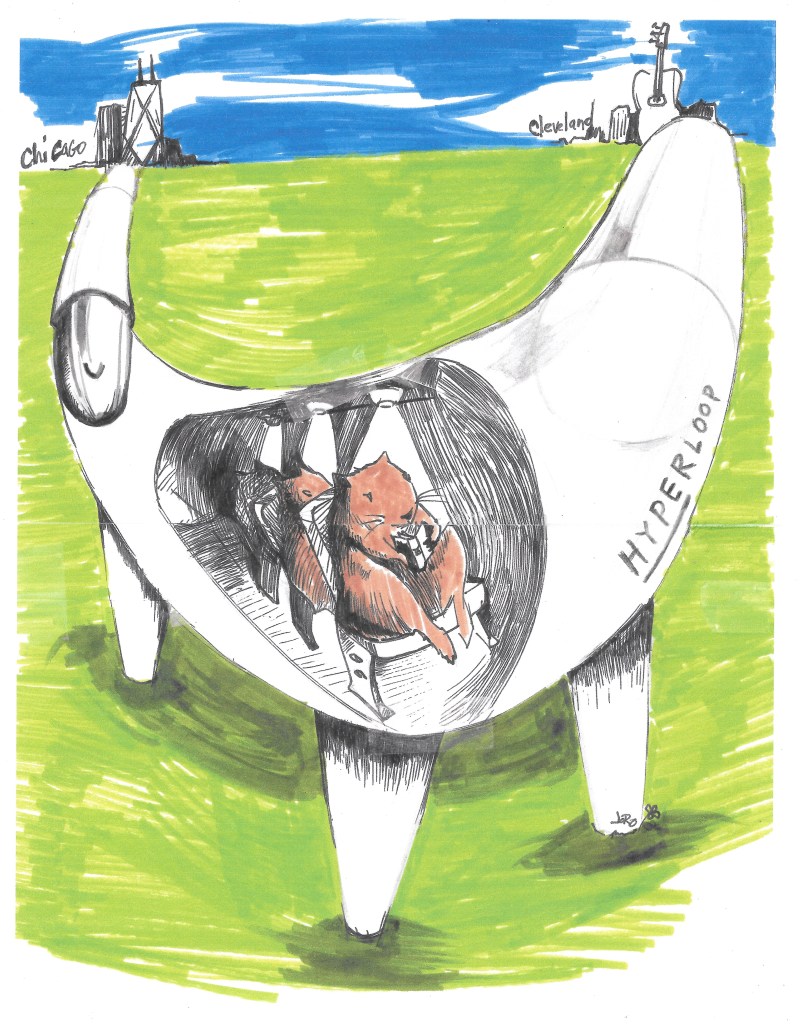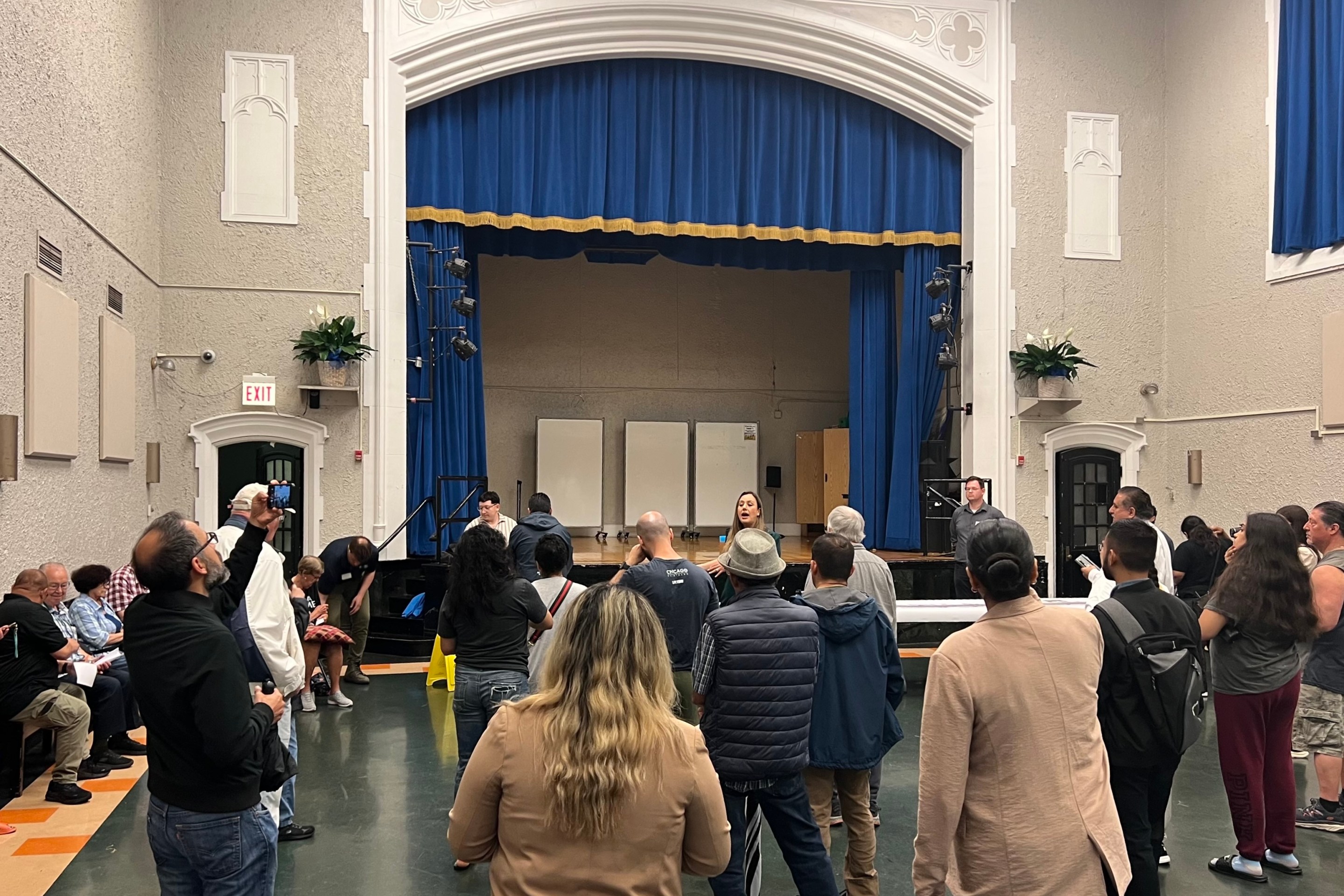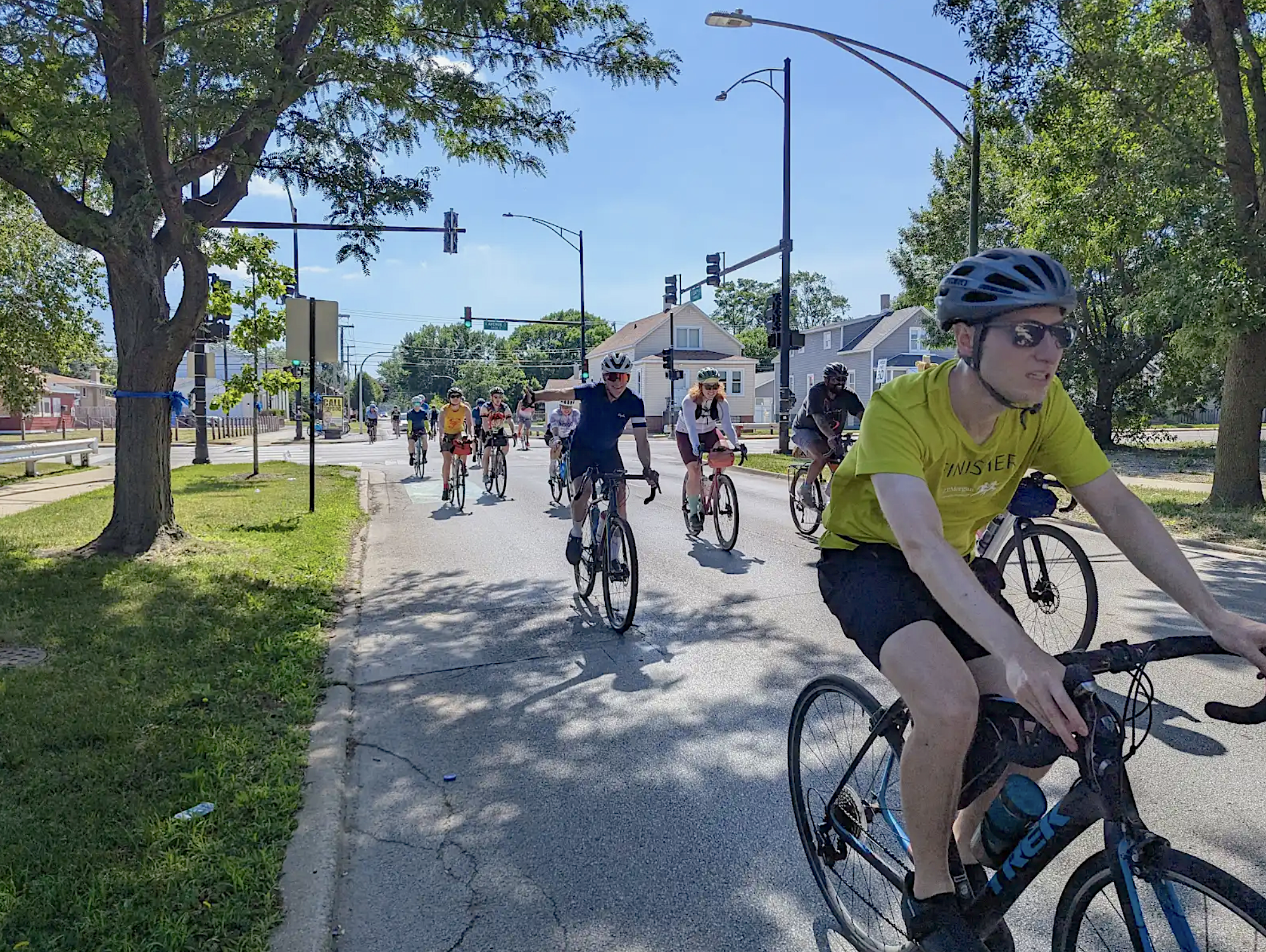
This spring Chicago mayor Lori Lightfoot did a major solid for Midwest sustainable transportation simply by taking office. Her predecessor Rahm Emanuel had been pushing hard for a premium express transit route to O'Hare Airport for elites, with a one-way ticket price of $20-25, as a way to make the city more attractive to business travelers and other well-heeled visitors. The city went as far as selecting erratic tech guru Elon Musk to build the system. Musk claimed he could tunnel about 17 miles from downtown to the airport and shoot passengers to O'Hare at 100 mph in "electric sled" pods, all for a mere $1 billion in construction and vehicle costs. The city and Musk promised that the initiative could be done without using any taxpayer money.
The route would have been redundant to the CTA Blue Line train, which is already an efficient way to travel between the airport, the Loop, and many other parts of town, and costs only $2.50 or $5 to ride. Since the O'Hare Express would only have had one downtown station, as opposed to the multiple Loop Blue Line stops, the express trip plus the necessary CTA, taxi, or ride-hail trip to one's final destination would mean that it probably wouldn't have even been much of a timesaver for many travelers. Musk hadn't actually invented the high-speed digging technology or the pods yet. Nearly across the board, transit advocates and experts pointed out that the plan was wildly unrealistic, and was a major distraction for city officials from more pressing neighborhood transit needs.
Thankfully, the O'Hare Express was essentially taken off the table when Lightfoot took the oath of office in May. During the election, she called the claim that the system could be built without public funds "a fiction." Shortly after becoming mayor, she confirmed that the project was dead as a doornail in an interview with the Chicago Sun-Times' Fran Spielman. "The notion that [Elon Musk] could do this without any city money is a total fantasy. And in thinking about what our transportation needs are, I’m not sure that an express train to O’Hare in the current proposal rises to the top of our list.”
So take heart sensible Clevelanders, who are currently your rolling eyes at an even more ridiculous Musk-ian boondoggle that's being championed by civic leaders, a Hyperloop tunnel from Cleveland to Chicago and Pittsburgh. Perhaps the story of cooler heads prevailing and nipping the O'Hare Express fiasco in the bud can serve as an inspiration and ammunition as you work to put the brakes on the Hyperloop, which has already wasted many hundreds of hours of staff time and more than a million dollars in planning funds.
As reported by the Cleveland Plain Dealer's Steven Litt, an 18-month, $1.3 million feasibility study unveiled today by the Northeast Ohio Areawide Coordinating Agency and Los Angeles-based Hyperloop Transportation Technologies states the project would cost a whopping $24.7 to $29.8 billion to construct, but claims the profits and economic benefits would make the expense worthwhile.
The Hyperloop, originally envisioned by Musk, is similar to his O'Hare Express scheme in that it would involved magnetic levitation tracks and pods, except that it would largely use above-ground tubes rather than tunnels, and the passageways would be vacuum-sealed. Allegedly these would carry vehicles with 28 to 40 occupants as fast as 760 mph. As with the airport proposal, the passenger-safe pods are purely hypothetical -- they don't actually exist yet.
NOACA Executive Director Grace Gallucci is proposing that more time and money be thrown at this almost-certainly-Quixotic endeavor. “I am sold to move to the next step,’’ she told the Plain Dealer. She recommending that the Cleveland region be involved in additional studies that could lead to construction starting on the mythical transportation corridor "as soon as 2023." The report claims that the so-far-imaginary technology could be up and running as early as 2028.
Some Cleveland sustainable transportation advocates have responded to the news with disgust. Here's what former Streetsblog USA editor and longtime Clevelander Angie Schmitt had to say:
The Hyperloop is the Medical Mart all over again.
— Angie Schmitt🚶♀️ (@schmangee) December 16, 2019
Elites decide on big ticket, silver bullet thing. Justify it with studies. Red flags everywhere. Ignored. Everyone who (correctly) points out it is stupid is dismissed as a crank. https://t.co/c2T2hG8nK4
(Schmitt describes the Medical Mart as a "gimmicky economic development scheme" that cost hundreds of millions of dollars, the result of Cuyahoga County officials getting "conned by some Chicago-based consultants." Read about that whole sorry saga here.)
"Why did NOACA waste everyone's time doing a big public planning process [on the Hyperloop] to then just ignore everyone's wishes and pursue this weird moonshot?," Schmitt tweeted. "Why did the Cleveland Foundation, who refuses to support transit advocacy with a single cent, give hundreds of thousands to this sideshow?" She also called out the Plain Dealer's Litt for doing "little more than [reprinting] the press release in all his reporting."
"This is how it always works," Schmitt concluded. "This is how terrible ideas just take on lives of their own in Cleveland."
The Cleveland Hyperloop situation must be incredibly frustrating for local proponents of proven, practical, but less sexy transportation options that actually exist, like fast intercity trains; rapid municipal subways, streetcars, and buses; and protected bike lanes. But hopefully the story of how the O'Hare Express died an early death offers a light at the end of the tunnel for them. I'll bet you Polish Boy sandwiches to dollars that this wasteful distraction from Cleveland's real-life transportation challenges is not long for this world either.






